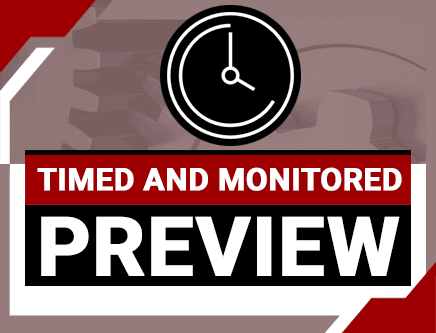RF Systems: Fundamental Concepts (Ohio T&M)
Credit: 2 PDH
Subject Matter Expert: Edwin A. Carrell, P.E.
In RF Systems: Fundamental Concepts , you'll learn ...
- Hardware components of an RF system
- Major purpose and typical functional parameters of each component
- Definitions of terminology and quantities
- How signals are transmitted through space
Overview

To meet the Ohio Board's intent that online courses be "paced" by the provider, a timer will be used to record your study time. You will be unable to access the quiz until the required study time of 100 minutes has been met.
Credit: 2 PDH
Length: 15 pages
This course describes the primary components used in typical RF (radio frequency) systems and describes their functions and characteristics as they relate to system performance. Terminology is explained where necessary for the benefit of the non-RF student. The level of discussion is aimed at students who have some familiarity with the concept of RF devices. While this course does not focus on consumer devices, many may be considered as "RF systems" in a broad sense. A cellphone, keychain remote car-door lock control, walkie-talkie, and radio-controlled model car embody many of the same functions found in large systems, such as the weather radar used by TV stations and satellite communications. To that extent, virtually everyone uses an RF system.
Starting from a very basic transmitting and receiving capability, the course introduces the student to system concepts without rigorous technical detail. Those who work in other disciplines will benefit from this course if they need to communicate and coordinate work with RF engineers, define the purpose and requirements for an RF system, or use an RF system in their own work. Future courses in the RF series are planned, depending on student interest, to cover more detail about the function, characteristics, application, and selection of both components and systems.
Specific Knowledge or Skill Obtained
This course teaches the following specific knowledge and skills:
- Hardware components of an RF system
- Major purpose and typical functional parameters of each component
- Definitions of terminology and quantities
- How signals are transmitted through space
- How signals carry intelligence and information
Certificate of Completion
You will be able to immediately print a certificate of completion after passing a multiple-choice quiz consisting of 10 questions. PDH credits are not awarded until the course is completed and quiz is passed.
| This course is applicable to professional engineers in: | ||
| Alabama (P.E.) | Alaska (P.E.) | Arkansas (P.E.) |
| Delaware (P.E.) | District of Columbia (P.E.) | Florida (P.E. Area of Practice) |
| Georgia (P.E.) | Idaho (P.E.) | Illinois (P.E.) |
| Illinois (S.E.) | Indiana (P.E.) | Iowa (P.E.) |
| Kansas (P.E.) | Kentucky (P.E.) | Louisiana (P.E.) |
| Maine (P.E.) | Maryland (P.E.) | Michigan (P.E.) |
| Minnesota (P.E.) | Mississippi (P.E.) | Missouri (P.E.) |
| Montana (P.E.) | Nebraska (P.E.) | Nevada (P.E.) |
| New Hampshire (P.E.) | New Jersey (P.E.) | New Mexico (P.E.) |
| New York (P.E.) | North Carolina (P.E.) | North Dakota (P.E.) |
| Ohio (P.E. Timed & Monitored) | Oklahoma (P.E.) | Oregon (P.E.) |
| Pennsylvania (P.E.) | South Carolina (P.E.) | South Dakota (P.E.) |
| Tennessee (P.E.) | Texas (P.E.) | Utah (P.E.) |
| Vermont (P.E.) | Virginia (P.E.) | West Virginia (P.E.) |
| Wisconsin (P.E.) | Wyoming (P.E.) | |


 Live support chat
Live support chat



